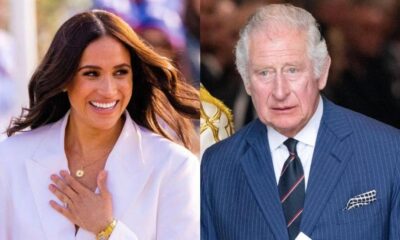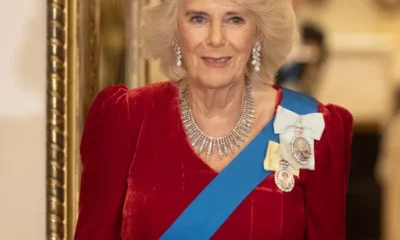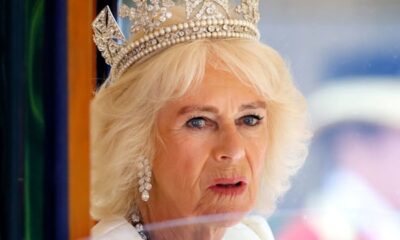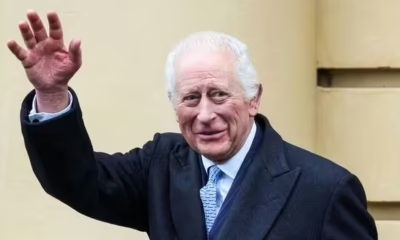ROYAL FAMILY
Just In: A royal tour ‘built around social media’: King Charles finds moments of informality and controversy Down Under…. See More
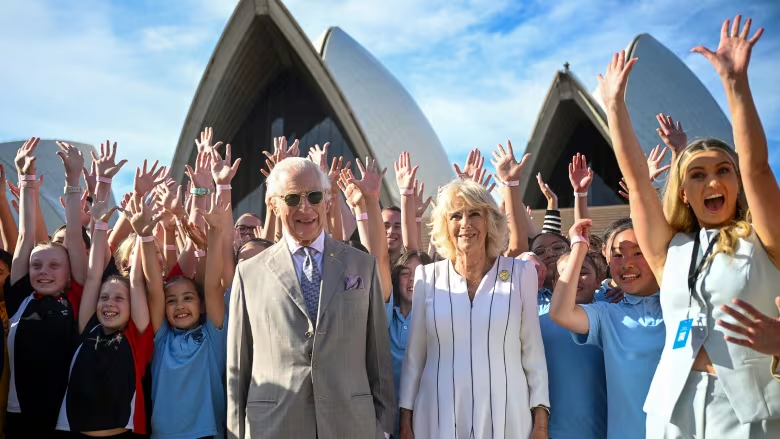
Monarch diagnosed with cancer early this year expected to return to ‘normal’ travels in 2025
King Charles flipped sausages on the barbecue and didn’t hesitate to offer up a hug as he and Queen Camilla met Australians during their recent visit.
Selfies were snapped as Charles and Camilla carried out a pared-down, carefully planned and jam-packed visit in Sydney and Canberra that offered a look at the evolving nature of royal tours.
Gone are the days of lengthy trips. There was no formal state banquet in sight during their four days of engagements in Australia.
And in a time where questions abound over how the monarchy finds relevancy in a modern world, there also seemed to be an acknowledgment of how so much information gets shared these days.
“This is a tour that’s built around social media and built around individual smartphones, so there were opportunities … for the King and Queen to be seen out and about and for individuals to take photos,” said Cindy McCreery, an associate professor of history at the University of Sydney, in an interview over Zoom this past week.
“There were fewer formal receptions with dignitaries and VIPs. The emphasis was very much on this idea of a people’s monarchy and of the King and Queen listening, going out and meeting with local people
The trip was Charles’s first visit as monarch to a Commonwealth realm. It was also his first major overseas trip since he was diagnosed with an undisclosed form of cancer early this year.
Given that, there were questions about how the trip, which included time in Samoa for the Commonwealth Heads of Government Meeting, would unfold.
“King Charles III is used to being busy and he’s used to undertaking extensive tours. So it was clear that he was glad to be touring again,” said Carolyn Harris, a Toronto-based royal author and historian, in an interview.
“He described the tour at one point as a kind of tonic and that he hopes to return to Samoa if he lives long enough.
“And so certainly there were moments like that where he was recognizing his own mortality, but there was also a tone of the King returning to overseas visits.”
Media reports out of London have suggested that Buckingham Palace is expecting Charles to return to a “normal” schedule of royal visits next year.
McCreery said Charles came across as “gracious, friendly and interested” in what he was seeing and the people he was meeting.
“He said the right things. And I think that reflects the great deal of planning that went into this tour and again, reflects lessons learned from the disastrous Caribbean tour of the Prince of Wales and Princess Catherine. I think the palace was much better informed [this time]. And again, I think they left a lot more to local organizers.”
There were moments of controversy, particularly when Charles was shouted at by an Indigenous Australian senator during his visit to Australia’s Parliament.
“This is not your land. You are not my king,” Sen. Lidia Thorpe yelled as she was ushered from the hall.
For Australians, McCreery said, that wasn’t such a surprise.
Thorpe “has a history of making public outbursts,” McCreery said.
“And to be honest, I think one might acknowledge [it was] really a very savvy use of media. You know, this was a moment when the world’s cameras would be taking notice.”
The outburst, McCreery said, “really drew stark attention, not so much to the King himself, but to the historical relationship of the monarchy in Australia and particularly of the plight of Indigenous Australians.”
Some Australians were embarrassed by the outburst.
“I’m not sure that that’s necessarily justified,” said McCreery, “but I think that there was that immediate kind of kneejerk response — ‘Oh no, this is bad because it makes us look bad.’
“And also it … exposed the fact that there is a great difference of opinion on the monarchy among Australians, including among Indigenous Australians.”
As short as the visit was, it was peppered with moments for Australians who wished to come out and see Charles and Camilla, whether it was when they went to church or to a community barbecue, where Charles took a few minutes at the grill.
In that moment, Harris saw a reflection of changing royal times.
“King Charles III at the barbecue for instance … is reminiscent of those scenes from the 1969 Royal Family documentary … with Prince Phillip at the barbecue at Balmoral,” Harris said.
But the 1969 documentary was capturing informal moments behind the scenes of the Royal Family’s public duties, whereas King Charles III is not afraid to have lighter, more informal moments during … his public duties. We don’t see that clear divide between public and private.”
As much as those moments are now shared on social media by those who see them unfold, Harris also sees parallels with earlier times.
She thinks back to coverage of the Montreal Olympics in 1976, when the whole immediate Royal Family was on hand to watch Princess Anne compete in equestrian events.
There were concerns because the Olympics were taking place in Montreal, that the Queen might face protests,” Harris said.
“But once the Royal Family was there …. their enjoyment of the Games as a family was seen as very endearing. So it’s interesting to see that these moments of members of the Royal Family being more informal — this is often what captures the popular imagination.”
How long it might stay in the popular imagination in Australia right now could be something of a question, however.
“It’s quite ephemeral…. For us here, from our perspective, the world has moved on” from the royal visit, said McCreery.
“In Australia, we’re looking at the U.S. election. That’s the big story in our newspapers and our news media, or local issues,” said McCreery.
And that, she suggested, reflects the “larger curious position” Australia is in.
“We are part of the Commonwealth. We are a constitutional realm. We are a constitutional monarchy. But from a day-to-day point of view, when our head of state is not here very often, we act almost as if we were a virtual republic.”

